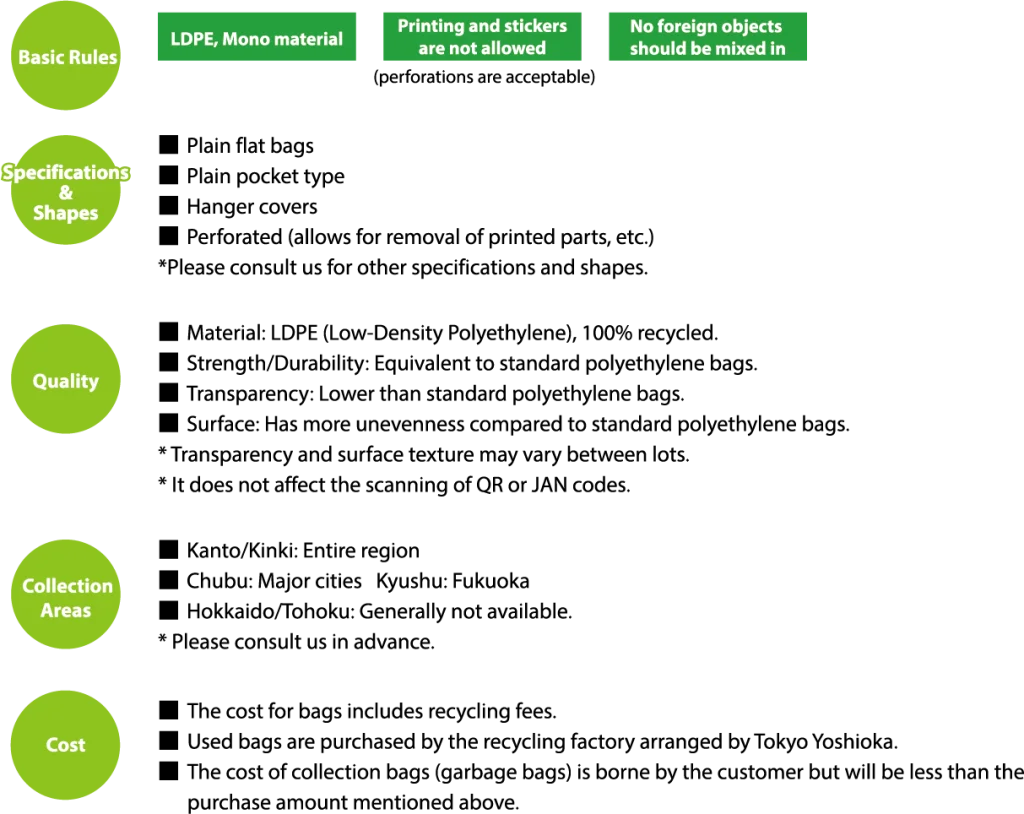Recycled Polyethylene Bags | RECYARL
We collect, recycle, and supply recycled transparent bags.
These transparent bags are used in manufacturing, distribution, and storage processes to protect products from dust and dirt. Normally, these bags are disposed of or incinerated after use.
In contrast to regular polyethylene bags, which involve the excavation and refining of crude oil and the incineration or disposal of used bags,
Eco-friendly recycled polyethylene bags do not involve these processes, thereby reducing CO2 emissions by 80% or more.
At Tokyo Yoshioka, we have named this complete recycling flow “RECYARL” and are committed to this initiative.
Image of Circular Recycling Concept
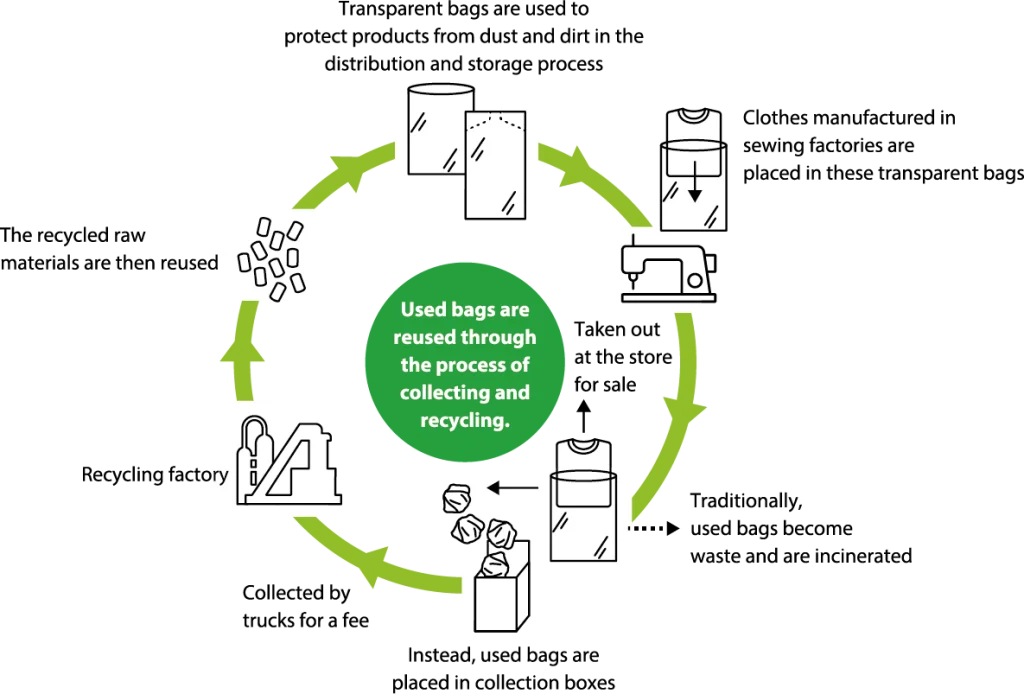
Carbon Footprint (Comparison by Stage)
The carbon footprint represents the amount of CO2 emitted as greenhouse gases in the overall lifecycle of products and services.
The objective is to encourage CO2 emission reductions by making information visible and identifying processes with high reduction efficiency.
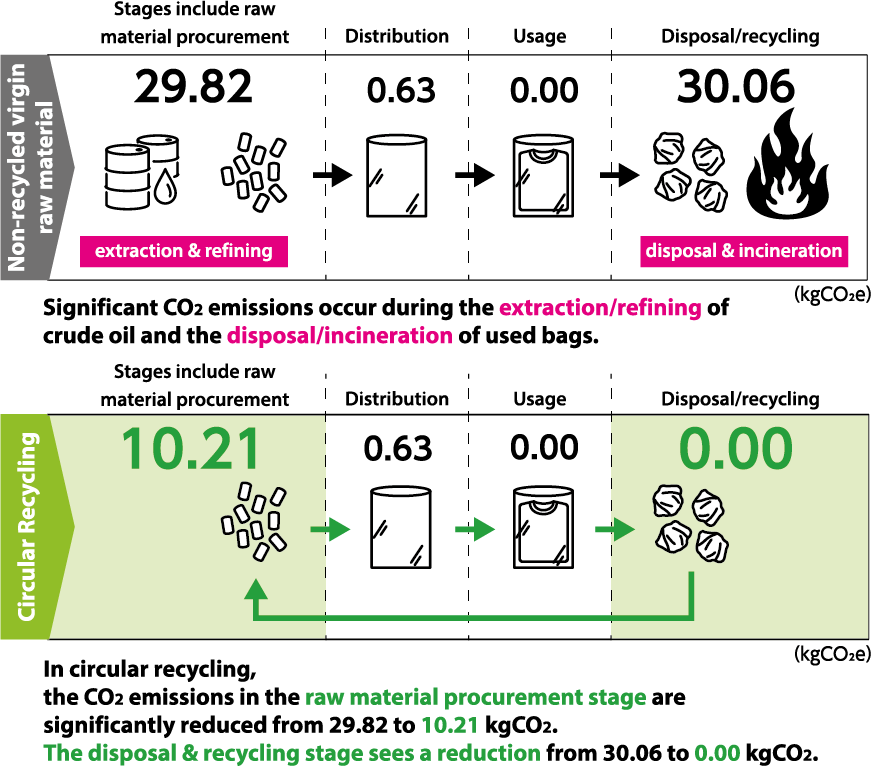
*Calculation size: 280×390+80mm
Calculation unit: 1,000 sheets,
Without printing or glue tape
*Calculated according to in-house rules in
accordance with ISO14067.
*IDEA Ver.3.1
(Safety Science Research Division, National Institute of
Advanced Industrial Science and Technology)
and the emissions intensity database of the Ministry of the
Environment were used for calculations.
Carbon Footprint (Overall comparison)
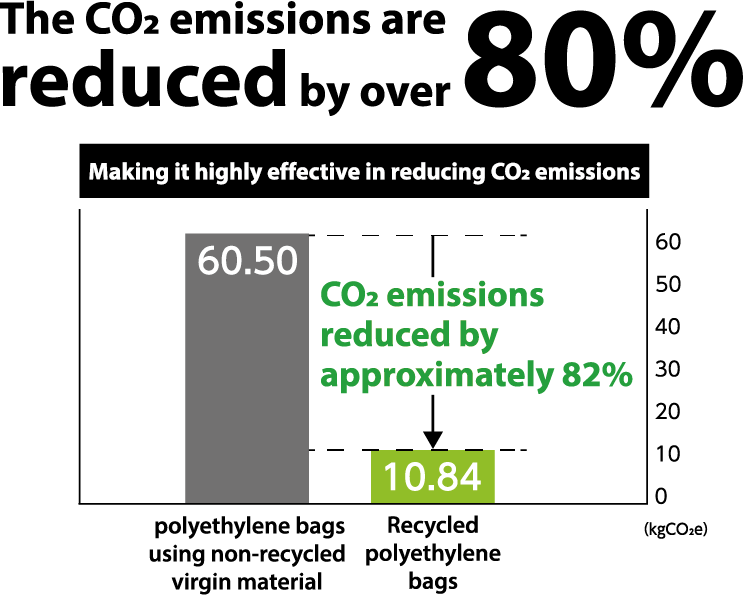
Carbon Footprint (Non-recycled)
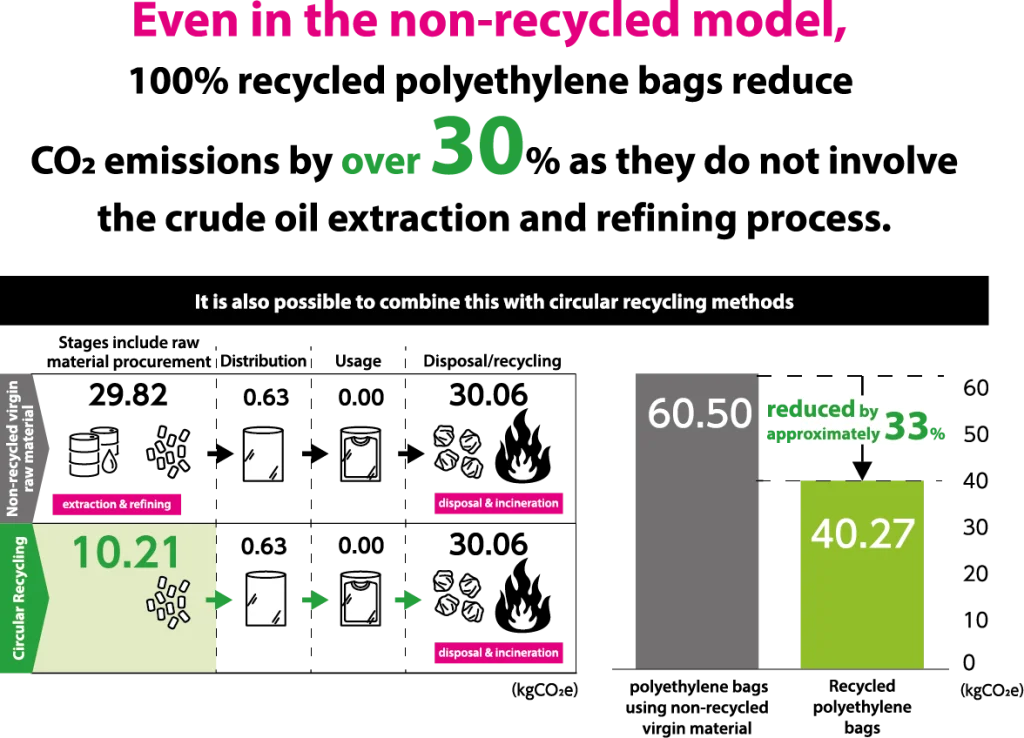
CO2 Emissions and Society/Market
- “The Plastic Resource Circulation Act”* came into effect in April 2022.
- “A target to reduce greenhouse gas emissions by 46% by the fiscal year 2030”has been set.
- A goal for“Zero CO2 emissions by 2050”
- Progress is being made in“Carbon Pricing (CO2 Emission Trading)” and “Carbon Tax (Tax on CO2 Emissions)”.
- Companies that are eco-friendly and socially conscious are attracting investments(ESG investment).
- “CO2 emissions” will start to become a benchmark for consumers when selecting products.
- Capable of addressing issues such asgarbage disposal and resource conservation.
*Measures to Promote the Recycling of Plastic Resources:
- Controlling the plastic waste and encouraging environmentally friendly design that contributes to recycling.
- Rationalization of the use of single-use plastics.
- Separating and collecting plastic waste, voluntary collection, and recycling.
Q&A
Q1 : What happens if the collected items contain printed parts or foreign objects (such as tape)?
A1 : If there are an excessive amount or harmful substances mixed in, the items may be returned to the customer.
Additionally, this can cause the factory line to stop, resulting in losses, so it’s important to inform all stakeholders about this.
Q2 : Will delivery become impossible if the collection is low?
A2 : There is an existing recycling flow at the factory, so orders and deliveries can be made at any time even if there is no collection.
Q3 : Does recycling cause degradation of the material?
A3 : We blend recycled materials to maintain a certain level of quality.
Q4 : How about the flow and cost when bags are collected?
A4 : The recycling factory sends collection trucks to the customer’s logistics center, where used bags are purchased as resources.
Product Overview
